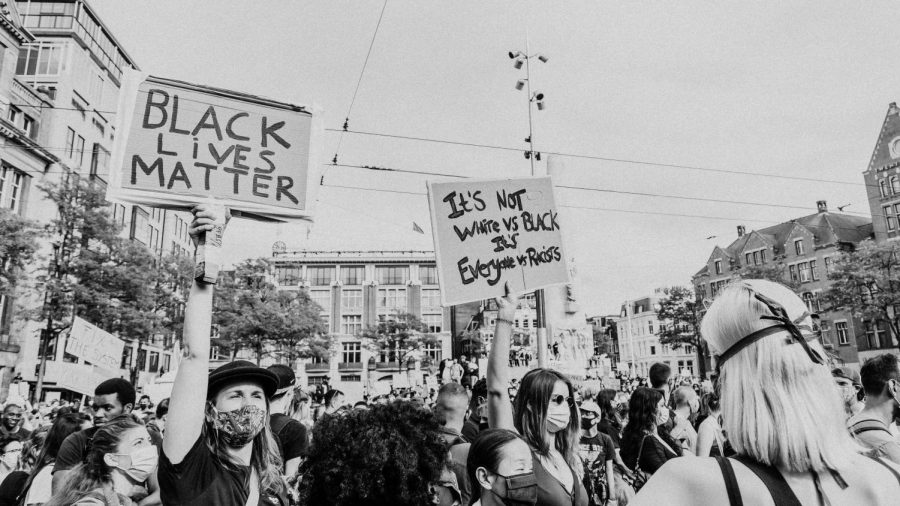Slomka: Listen to Black Lives Matter
Sep 8, 2020
765 people have been killed by police officers in 2020. Black people make up 28% of this statistic, despite only making up 13% of the United States population. In general Black people are three times more likely to be killed by police than white people, with approximately 17% having been unarmed at the time of their killing, making the Black community the most likely demographic to be murdered by police whilst unarmed (by comparison, about 13% of white victims were unarmed– quite a jump in percentages). The Black Lives Matter movement was founded in 2013 as a response to the murder of Trayvon Martin, an unarmed Black minor who was shot and killed by George Zimmerman of the Twin Lakes Neighborhood Watch Program. The Black Lives Matter movement sought to spread awareness of police brutality and combat it on a legislative level. As rates of police brutality against Black Americans continues to increase (police killed more people during the first half of 2020 than they did in the entirety of 2019), the Black Lives Matter movement has continued to inspire action and, in some cases, outrage.
How could Black Lives Matter, a proclamation of the Black community’s value and very right to live, be controversial? Sometime after the introduction of the Black Lives Matter movement, the All Lives Matter movement was born, seeking to criticize the focus put on the systemic oppression of Black people with a pseudo-inclusive agenda. It’s such an obvious take– of course all lives matter… Or do they? Slavery in the United States was legal from around 1619 to 1865– 246 years. Segregation lasted from about 1865 to 1964– 99 years. Black Americans have only been “free” for about 56 years, and since have faced constant police brutality, fewer employment opportunities, less pay, and practically no political representation (out of the 541 members of congress, only 56 are Black). All things considered, America doesn’t seem to think that Black lives matter. And if Black lives don’t matter, then all lives don’t matter.
This brings us to the most prominent flaw in the All Lives Matter logic– the All Lives Matter movement likes to promote the idea that all people are equal and that no demographic is worth focusing on, but the statistics indicate that Black people are obviously facing deep-rooted systemic oppression that white people never have to face. In an ideal world, all lives would matter, but to make that a reality, we need to focus on the urgent issues faced by marginalized communities, such as police brutality towards Black people. Think of America as a neighborhood, and each home is a different demographic or community. When a home catches on fire, the fire department (which we could interpret as activists) arrives to put out the fire and try to save the home. This isn’t an exclusionary act– they’re not excluding the other homes by not spraying them, as the other homes don’t need to be put out. Rather, they’re focusing their time and effort into preserving the home that is at risk of being burnt down. If one of the neighbors took offense to the firefighters’ focus on the flaming home and suggested that “all homes matter!” they would face extensive ridicule; yes, all of the homes in the neighborhood do matter, but not all of them are struggling to the degree that the flaming home is.
When someone responds to “Black lives matter” with “all lives matter,” it’s indicative of two possibilities: either they wish to discredit the Black Lives Matter movement by making it seem exclusive, or they are simply well-meaning yet ignorant, and don’t fully understand the struggle the Black community faces to have the importance of their lives reflected in legislation. And all lives can’t matter until Black lives matter.








